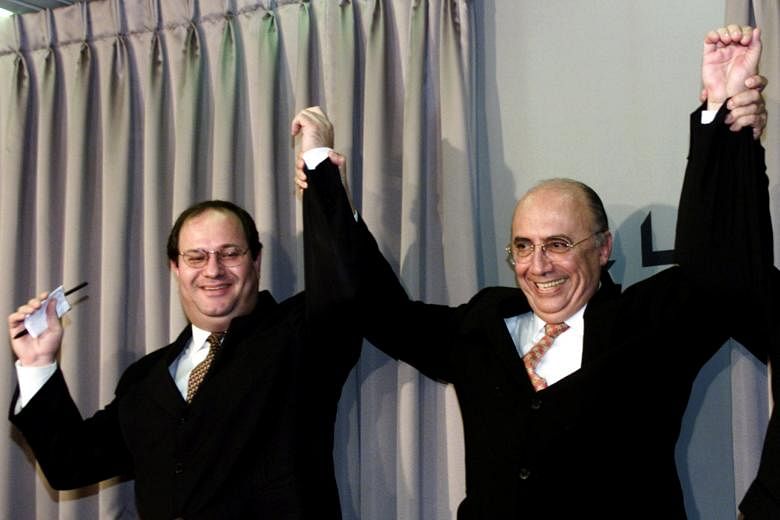BRASILIA (Reuters) - Brazil's interim government on Tuesday (May 17) named the lead economist of the nation's largest private bank to head the central bank, in a further shift away from interventionist policies that many blame for a deep recession and near double-digit inflation.
Ilan Goldfajn, chief economist of Itau Unibanco Holding SA , will replace Alexandre Tombini as central bank governor, Finance Minister Henrique Meirelles said in a briefing in which other respected economists were named to his economic team.
Goldfajn, 50, has been widely praised on Wall Street for his orthodox approach to economics and is expected by investors to be less vulnerable to political interference than Tombini, a career technocrat appointed by the previous leftist government.
An Israel-born graduate of MIT, Goldfajn has said Brazil urgently needs to rebalance its fiscal accounts with pension reforms and public spending caps to slow inflation and snap it out of what is believed to be its worst recession in a century.
He recently warned against a hasty interest rate cut while acknowledging that slowing inflation would clear the way for monetary policy easing, probably starting in July.
Brazil's inflation rate is running at just under 10 per cent.
"Ilan may have leaned toward the dovish camp in the past but under the current circumstances, I have no doubt that he will strive to deliver inflation on target," said a former central bank colleague who spoke on condition of anonymity.
The central bank aims to keep inflation at 4.5 per cent, the center of its official target. It is under pressure to cut its benchmark Selic rate, currently at near 10-year highs, to stimulate an economy reeling from rising unemployment and shaky consumer and business confidence.
Under Tombini's leadership, the central bank has repeatedly missed its annual inflation targets, hurting its credibility with investors and fueling speculation of political interference from now-suspended President Dilma Rousseff's government.
During her five years in office Rousseff intervened in the economy by keeping fuel and electricity prices at below-market prices to force inflation artificially down, eroding investors'confidence in what was once an emerging market star.
'REGIME SHIFT'
Interim President Michel Temer, who replaced Rousseff after she was suspended by the Senate last week for breaking budget rules, has promised a business-friendly turn to regain investors' favour.
"Well-trained technocrats ... should allow the government to establish a clear regime shift," Goldman Sachs senior economist Alberto Ramos wrote in a research note.
"The effectiveness of the new economic team in driving policy and overcoming the current difficulties will depend critically on the degree of political support."
Meirelles, a former central bank governor appointed last week to lead the economic team, also picked fiscal expert Mansueto Almeida, a former adviser to Temer ally and ex-presidential candidate Aecio Neves, to be secretary in charge of economic monitoring.
The finance minister also named former central bank director Carlos Hamilton Araujo as secretary of economic policy.
Brazil's Senate must ratify Goldfajn's appointment.
Meirelles said he would discuss future changes to the bank's eight-member board with Goldfajn, adding that Tombini will remain in place until Goldfajn took over and would continue to help the government.
An official familiar with the decision told Reuters on Monday that Goldfajn could replace Tombini before the bank's next rate-setting meeting on June 8. Last week, Temer's press office told Reuters that Tombini could stay on the job until June as part of a gradual leadership change.
Meirelles also said on Tuesday that the government will propose a constitutional amendment to give "technical autonomy" to the central bank, but not the formal independence enjoyed by regional peers Mexico and Chile. Legal reforms to hand the central bank independence would be analyzed in the future, Meirelles added.

